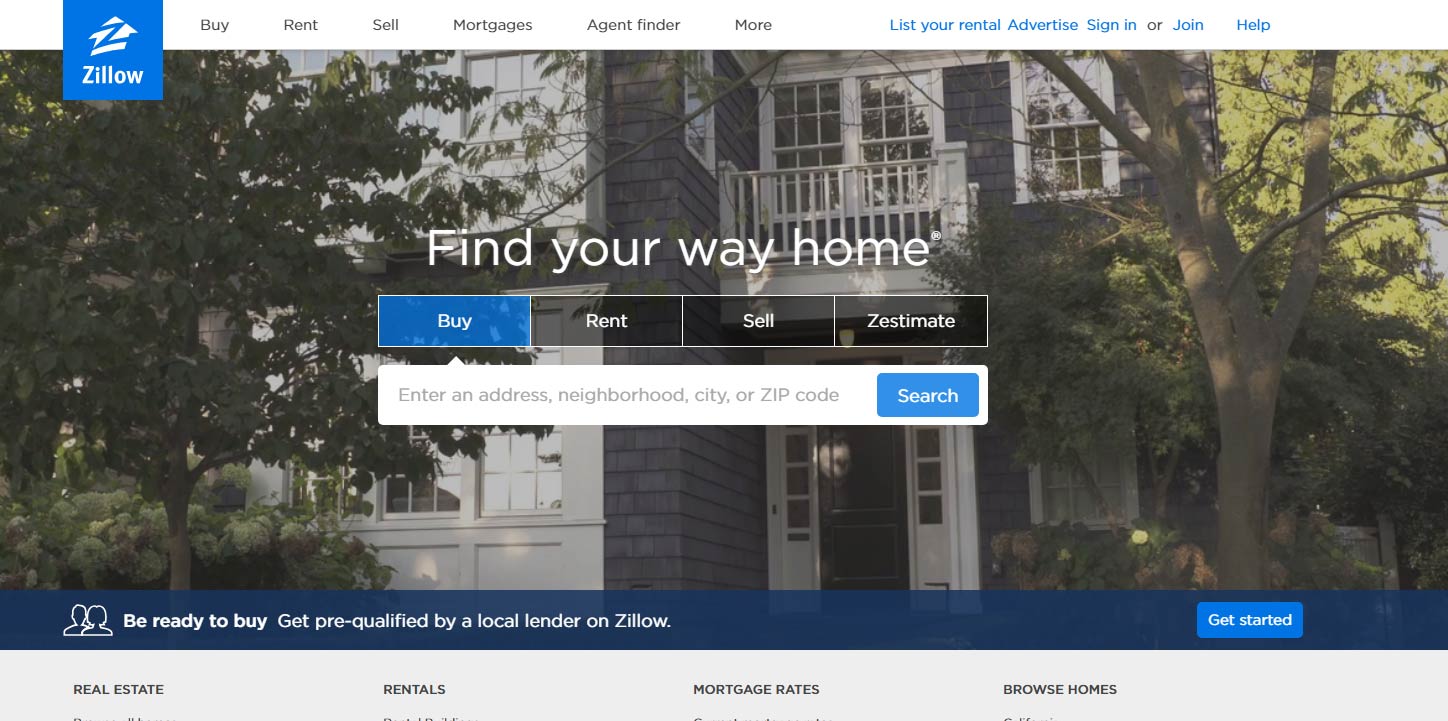Compare Sold.com and Zillow.com
For Sellers
Answer: Sold.com is a referral fee network that enables broker-to-broker collusion with use of blanket referral agreements while Zillow.com is a Multiple Listing Services (MLS) aggregator
Selling with Sold.com
WARNING: Unlawful Kickbacks, Broker-to-Broker Collusion, False Marketing, Wire Fraud, Price Fixing.
Sold.com) is a broker-to-broker collusion scheme, where "partner agents" unlawfully agree to pay massive kickbacks to receive your information and engage in market allocation, consumer allocation, false advertising, unlawful kickbacks, wire fraud, and price-fixing practices in violation of, inter alia, 18 U.S.C. § 1346, 18 U.S.C. § 1343, 15 U.S.C. § 1, 15 U.S.C. § 45, 12 U.S.C. § 2607, 12 C.F.R. § 1024.14. As a consumer, you will always significantly overpay for Realtor commissions subject to hidden kickbacks and pay-to-play steering promoted in this scheme.
United States federal antitrust laws prohibit consumer allocation and blanket referral agreements between real estate companies.
Be smart; do not allow your information to be "sold as a lead" to a double-dealing Realtor in exchange for massive commission kickbacks paid from your future home sale, or your future home purchase.
Sold.com is a referral fee network designed to collect fees by matching consumers with local real estate agents willing to participate. Sold.com operates as a licensed real estate brokerage in California under BRE License #01937601, but it does not produce any services that are typically offered by real estate agents and does not represent consumers when selling real estate in any State.
When consumers submit information to Sold.com, this information is simply sold to real estate agents who are willing to pay for it with a 30% share of their commission.
Sold.com Pricing
Sold.com revenue comes from referral fees.
Listing Services
- This Service Does Not Represent Sellers
Buyer's Agent Services
- This Service Does Not Represent Buyers
Sold.com Editor's Review:
On paper, Sold.com seems to have a great idea – to provide its users with the best way to sell a home, but in reality, it is a referral network designed to steer consumers toward agents and other services willing to pay a cut of their commission back into the network.
Sold.com states that it is an “unbiased” and consumer-focused service, but the actual model turns out to be much less effective - Sold.com is a California licensed real estate broker that collects a 30% referral fee from all real estate agents that participate.
This fee makes it hardly a free service for anyone since referral fees are inevitably passed down to consumers. More importantly, Sold.com applies this pay-to-play bias towards all matching results, meaning, only real estate agents that have agreed to pay a referral fee are displayed in match results for consumers.
Sold.com audits all transactions because it needs to find out how much money real estate agents receive in commissions, inevitably collecting private details of consumer’s agreement for home purchase or sale.
Sold.com plays fees down to consumers - it states directly that the service is 100% free, but at the same time, it rigidly locks every participating real estate agent into 30% referral fee attached to the back-end of every contract. As a licensed real estate agent that doesn’t perform any real estate services or takes any responsibility for the transaction, it is not entirely clear how this process works under the Business and Professions Code and RESPA.
Clearly, real estate agents only sign-up with Sold.com because the price of the referral fee can be easily incorporated into their client's agreement with excessive commissions. Sold.com receives the second lowest score because this service is clearly biased and it claims to provide the complete opposite of what it actually does.
Where does Sold.com operate?
Buying and Selling with Zillow
Zillow is an MLS Aggregator that allows buyers and sellers to list homes and find out what local homes are available for sale. Zillow aggregates home listing data from thousands of private MLS databases across the United States.
By making this otherwise unavailable information to consumers, Zillow creates a positive value-added experience with local results for the majority of available listings.
Zillow generates revenue with ads using Zillow Group’s Premier Agent and Premier Broker programs.
Zillow Pricing
Zillow does not offer paid services to consumers directly, instead, the portal generates revenue with ads and referral fees from real estate brokers.
Listing Services
- This Service Does Not Represent Sellers
Buyer's Agent Services
- This Service Does Not Represent Buyers
Zillow.com Editor's Review:
This review is focused on Zillow as an MLS aggregator, separate from the referral fee network (Zillow Premier Broker) and (Zillow Instant Offers). Two separate reviews are assigned to Zillow Premier Broker and Zillow Instant Offers programs. As an MLS aggregator, Zillow benefits real estate consumers with highly accurate MLS data and home value estimates.
Today, most consumers ready to buy or sell real estate begin their search on the Internet. This is a logical first step that can help identify similar properties, pricing budget to help make the correct decision about buying or selling real estate. Zillow is one of the main and most well-known sources of such information. Zillow analyzes property values, aggregates data and displays results that make sense to seasoned real estate professionals as well as newbie home buyers and sellers.
Undeniably, Zillow, has a great wealth of aggregate MLS property information, an easy-to-use interface, valuable neighborhood information, excellent user reviews and a wide array of real estate-related services, articles, and forums. Zillow is one of the top real estate platforms in the United States and will likely remain there with acquisitions of Trulia.com, Streeteasy.com, and RealEstate.com “mirror” platforms. The chances are that a consumer either buying or selling a home uses Zillow platform or one of its affiliates as part of their real estate transaction experience.
Zillow is technically free, but Zillow is funded with advertising and referral fees. Zillow advertising costs vary by ZIP code, cost per impression and Premier Broker referral fees are currently hidden from consumers. Agents that sign-up for their Premier Agent program "get in front of buyers and sellers in the largest online real estate network."
This fact ultimately means that real estate agent recommendations provided to real estate consumers by Zillow are biased. Those agents that pay Zillow for Premier Agent accounts consistently show up first in their search results without a clear indication of Premier status. Thus, an agency at the top may or may not be the best choice, yet Zillow implies to its users that it is.
As of 2019, Zillow has further turned to “broker mentality” against consumers with an introduction of Zillow Premier Broker and Zillow Instant Offers programs. Both of these programs effectively take Zillow into a middle-man real estate broker category, and away from an independent portal. Zillow had designed these programs to “trade consumers as leads” and push buyers and sellers onto a select group of real estate agents in exchange for hidden referral fees.
Unlike the Premier Agent program, where agents simply pay for ads, Premier Broker is a pay-for-play lead generator pipeline that qualifies consumers as a service.
This literally means that Zillow qualifies consumers into a commodity where agents buy that commodity; Zillow calls this a “flexible” payment option. Zillow CEO states that “it simplifies selling process because it de-risks the purchase decision for advertisers.” There is no upfront fee to brokers when they receive consumers info as validated leads, so there is no risk to the broker if they quote a consumer a "standard" commission – if the broker doesn’t get the business, they move on to the next validated lead with their overpriced commission offerings.
Like any other limited agent referral network of agents who are willing to pay “industry standard performance advertising expense” the only job for Zillow here is to push a few agents onto consumers en masse. With even a small percent success rate, each time Zillow converts consumers into leads, it receives thousands or tens of thousands in referral fees, typically set at 25%-40% of the commission. This business model is called reverse competition, where Zillow still refuses to acknowledge the exact amount in referral fees it receives from this new program.
The only way real estate agents are able to pay 25%-40% of their commission to Zillow is to either reduce service or jack up the price. Consumers should be careful not to provide their complete information to Zillow including name, email and a phone number in order to avoid being "sold as leads" to random real estate brokers.



